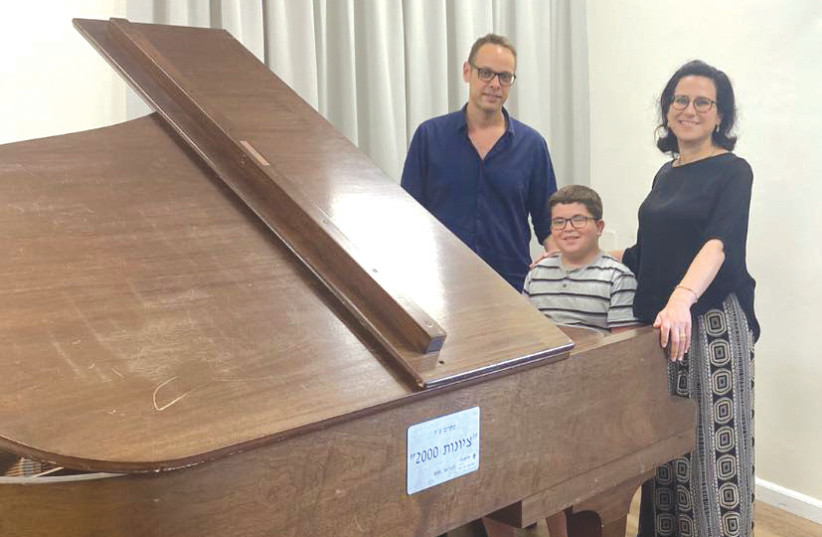Among the thousands of school-age youth who have been relocated from the South and North during the Gaza war are those studying music. Rather than being forced to put away their instruments, they’ve been welcomed by music schools like the Herzliya Music Center and The Israel Conservatory of Music in North Tel Aviv.
“We have remained open since the second day of the war,” said David Sofer, CEO of the Herzliya Music Center, which employs 90 teachers, conductors, and staff and teaches 500 pupils in three branches of the city. “We must consider not only the needs of our regular students, but the hundreds of children and teen evacuees whose lives have been shattered by terrible experiences. In short, they have been uprooted from their homes, deprived of the structure in their lives, and torn from their familiar surroundings. Many are without structured educational programs and all are in limbo regarding how long this situation will last.
At the outset of the war, Sofer consulted his staff and the CEO of Herzliya’s committee for Art and Culture about the option for the music schools to remain open. Firstly, they decided arts and music were essential for well-being, especially for young people deprived of normal routine. Since the buildings used by the music schools were built with protected spaces, they fill required safety needs, and all programs remained open and functioning. Moreover, they were granted the ability to extend an invitation to the members of the evacuee community to come and make music together.

Sofer and staff extended their invitation on social media, and by hosting children and their parents for a day of music activities with the added “cherry” of a concert by one of the conservatory’s wind bands. Over the next two months, interest has increased and Herzliya and the Music Center have provided free music lessons for forty evacuee students on guitar, piano, and string instruments, and are committed to supporting these children in their musical pursuits for as long as it takes until they can return home.
“In these challenging times, we realize the need to provide these young refugees with another lifeline,” said Yoav Shemesh, VP of the music center. “The need for music in their lives is greater than ever.”
The Israel Conservatory of Music in North Tel Aviv also extended an invitation to members of the evacuee community They have warmly welcomed children, teens and adults who are temporarily living in the Tel Aviv area with the opportunity to learn an instrument or continue their instrumental or voice studies at the conservatory for free.
“The children like the opportunity to make music very much,” says Hadas Kaplan, coordinator for community outreach and special programs at the ICM. “We take care of logistics: renting the instruments and delivering them to these students before they begin lessons. In this way, we help them not only get started on the right foot but also create a new dream in their lives.”
“We are also thinking about more programs to meet their needs during this difficult situation. It is hard to imagine what a gigantic disruption it has been in the lives of the evacuee community.”
“In addition to offering private lessons, our plan is to invite the evacuee community to concerts, and those who are able, to participate in some of our ensemble programs. This is our way of offering help at this difficult time.”
The community around the ICM is also helping. Since the Israel Conservatory of Music is in the Savidor area of Tel Aviv and the hotels where the evacuees are staying are not close, the ICM reached out and arranged a team of volunteers from the community to pick up the children from where they are staying and bring them to and from the school The ICM invites these students to learn for free, and their teachers have signed on as volunteers.
ICM guitar teacher Shay Alon explained that working with his evacuee student from Sderot area Kibbutz Or HaNer, Roni Shamir, was important for both of them.
“Music helps her go to a special place within her soul, and create small magical moments which are a necessary part of post trauma healing,” he said.
As for Shamir, her mother Racheli said that “the guitar lessons are the one point of light for us in these difficult times.”
